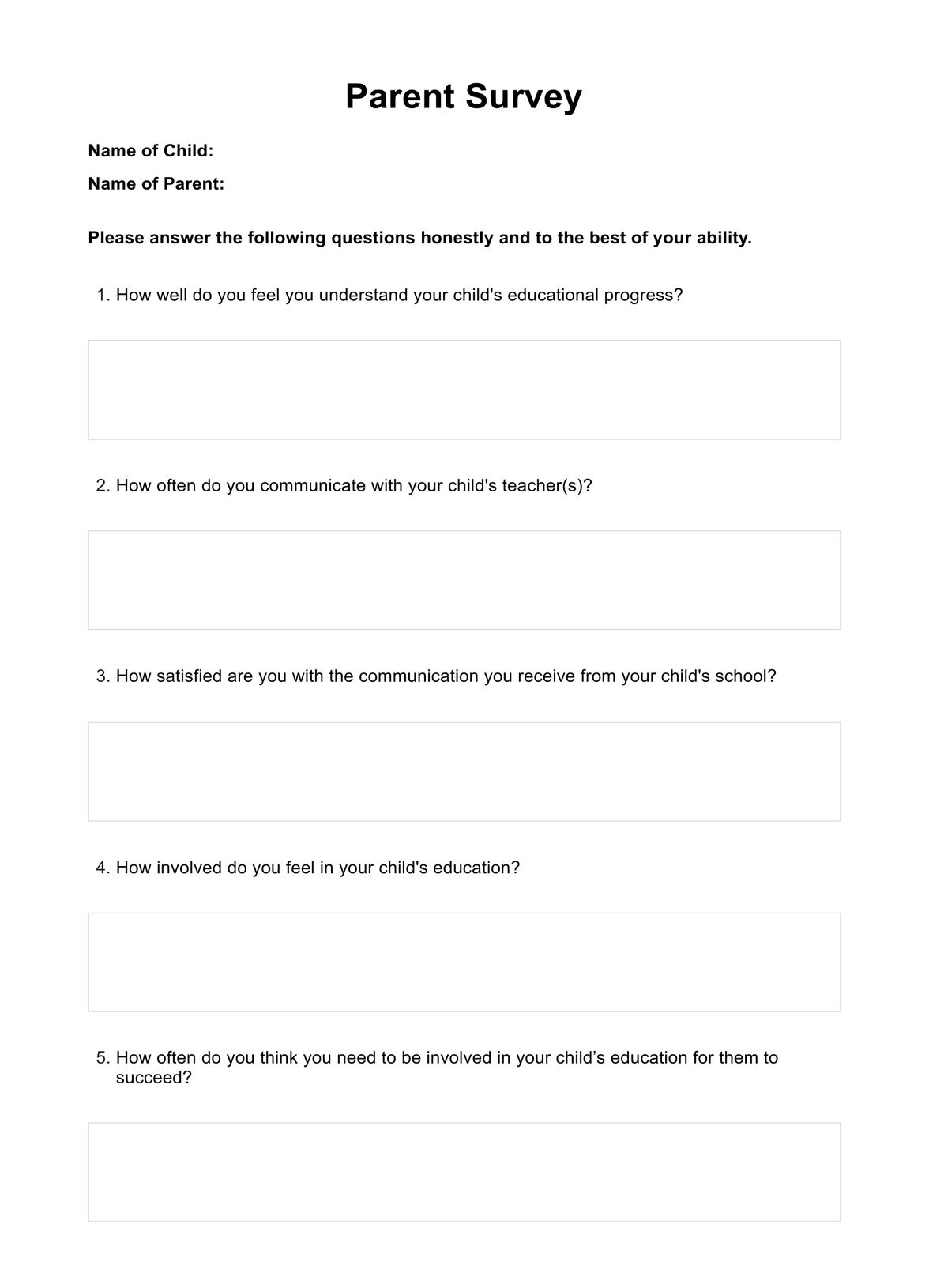Parent Surveys are used by schools, childcare providers, and government agencies to gather feedback and improve services.

Parent Survey
Improve Parent Engagement with Parent Surveys. Gather feedback to optimize educational experiences and support for children.
Parent Survey Template
Commonly asked questions
Parent surveys are valuable tools to use in specific situations: after significant changes like a new curriculum or school leadership team, when planning new programs, or when facing challenges like low test scores or declining enrollment.
Gathering feedback from parents during these times can provide valuable insights to address their concerns, needs, and ideas for improvement.
To use a Parent Survey effectively, tailor it to your school's needs and gather feedback regularly. Design a clear and relevant survey with easy-to-understand questions and instructions.
Set a deadline and offer incentives to encourage parents to participate. Analyze the results and use the feedback to improve, ensuring the survey is valuable and yields actionable insights.
EHR and practice management software
Get started for free
*No credit card required
Free
$0/usd
Unlimited clients
Telehealth
1GB of storage
Client portal text
Automated billing and online payments











